- News
- Reviews
- Bikes
- Accessories
- Accessories - misc
- Computer mounts
- Bags
- Bar ends
- Bike bags & cases
- Bottle cages
- Bottles
- Cameras
- Car racks
- Child seats
- Computers
- Glasses
- GPS units
- Helmets
- Lights - front
- Lights - rear
- Lights - sets
- Locks
- Mirrors
- Mudguards
- Racks
- Pumps & CO2 inflators
- Puncture kits
- Reflectives
- Smart watches
- Stands and racks
- Trailers
- Clothing
- Components
- Bar tape & grips
- Bottom brackets
- Brake & gear cables
- Brake & STI levers
- Brake pads & spares
- Brakes
- Cassettes & freewheels
- Chains
- Chainsets & chainrings
- Derailleurs - front
- Derailleurs - rear
- Forks
- Gear levers & shifters
- Groupsets
- Handlebars & extensions
- Headsets
- Hubs
- Inner tubes
- Pedals
- Quick releases & skewers
- Saddles
- Seatposts
- Stems
- Wheels
- Tyres
- Health, fitness and nutrition
- Tools and workshop
- Miscellaneous
- Cross country mountain bikes
- Tubeless valves
- Buyers Guides
- Features
- Forum
- Recommends
- Podcast
review
£3,799.99
VERDICT:
Quality frameset that covers the miles quickly whether on or off-road, and looks the business too
Weight:
9,730g
Contact:
At road.cc every product is thoroughly tested for as long as it takes to get a proper insight into how well it works. Our reviewers are experienced cyclists that we trust to be objective. While we strive to ensure that opinions expressed are backed up by facts, reviews are by their nature an informed opinion, not a definitive verdict. We don't intentionally try to break anything (except locks) but we do try to look for weak points in any design. The overall score is not just an average of the other scores: it reflects both a product's function and value – with value determined by how a product compares with items of similar spec, quality, and price.
What the road.cc scores meanGood scores are more common than bad, because fortunately good products are more common than bad.
- Exceptional
- Excellent
- Very Good
- Good
- Quite good
- Average
- Not so good
- Poor
- Bad
- Appalling
As you might guess from the name, the Croix de Fer Ti is the titanium edition sitting at the top of Genesis' do-a-bit-of-everything range. It delivers a smooth and comfortable ride on many terrains, and with smooth, neat welds it looks the business too. However, its narrow tyre clearance and limited load carrying mean that it isn't quite as hardcore as some other adventure bikes out there for similar money.
- Pros: Comfortable ride regardless of surface; GRX groupset gives a sensible range of gears
- Cons: Maximum tyre clearance of 38mm; could do with lighter wheels
Ride
On the road the Croix de Fer (CdF) is easy to ride. The relaxed geometry gives neutral handling and it feels very stable too, making it perfect for a bit of audax, light touring or as a commuter. The comfort from the titanium frame is brilliant too, all of which makes for a great bike if you just want to focus on the scenery and tap out the miles.
> Find your nearest dealer here
This might make the CdF Ti sound a bit boring, but it certainly isn't. Find a fast stretch of road and you can keep this thing moving at a decent lick, or point it at a downhill and it'll carve a smooth line through the bends, especially if you swap out to some grippy slick tyres.
With a 71.5-degree head angle and 50mm fork offset the steering is less precise and slower than a race bike, but there is plenty of feedback from the tyres through the frame and fork so you already know that and can react accordingly.
Not that you're exactly going to be ragging this thing around trying to achieve PBs left, right and centre; its handling works much more in favour for those long rides on unknown roads, when tired or in crappy weather conditions.
I found my riding position on the CdF to be a good balance of aero and upright enough to take the strain off my lower back; coupling that with the easy handling, I could spend hours on it without having to move around a lot. Climbing felt comfortable in the saddle and I could use the lower gears of the Shimano GRX groupset to sit there and tap out the metres of ascent, especially as the CdF isn't exactly the lightest at 9.73kg.
Getting out of the saddle showed a decent amount of stiffness, and the CdF is pretty responsive when you push it hard. On steep climbs I could wrestle up to the peak without any major feelings of flex through the bottom bracket shell.
Even with this easy-to-live-with handling, taking the Genesis off-road gives you a slightly more exciting ride when the ground starts moving around beneath you. I spent a lot of the time on the gravel tracks with the CdF and it was a pleasurable place to be. The feedback I mentioned on the road is just the same off it, even with the extra vibration and ride noise coming through. If the tyres slip, you know about it and can shift your weight accordingly.
On one of my routes you can join a couple of gravel tracks by heading though the woods for about two miles of mud and chalk singletrack. It's fun, not massively technical but does have plenty of ruts and tree roots running across it to wipe you out. It was pretty wet and sticky at the time of testing, and the WTB semi-slick tyres weren't exactly perfect, but the CdF showed how that feedback from the frameset still works here.
It's nowhere near as nimble or as much fun as a gravel racer like the Canyon Grail or Cotic Escapade, but it is pretty capable if you find yourself properly off the beaten track.
The CdF Ti doesn't necessarily excel at any given thing, but that's not doing it a disservice – it is simply very good at getting on with the job. If you want loads of excitement on or off-road there are better options, but the Genesis offers a good ride on or off-road without much in the way of sacrifice. Riding a route where you are spending large chunks on differing terrains is where the CdF delivers, and you can cover a lot of miles in comfort.
Frame and fork
Titanium is the ideal material for a bike like the CdF. The 3Al/2.5V (3% aluminium/2.5% vanadium) grade is stiff, reasonably light, offers a comfortable ride if the tubes have been selected and created correctly, and, more importantly, will take a whack or two. That's perfect for a bike that could possibly see a bit of abuse away from the road.
Genesis describes the tubing as double-butted, which means it has two different wall thicknesses – thicker at the ends where tubes are welded together and need extra stiffness to resist forces, thinner in the middle to allow for a bit of flex to promote comfort.
I like the look of the frame overall. The tubing profiles look pretty traditional, with no massive oversizing except for the tapered head tube, and the brushed finish will remain looking good for many years to come.
Internal cable routing might make things a look a little cleaner but it can be a faff to achieve on thin-walled metal tubes, and also this is a bike to be ridden out in the wilderness; having everything exposed makes for easier maintenance and replacement.
The frame does work with electronic groupsets and does have internal routing for the wires entering on the top of the down tube and reappearing near the mechs. The only downside to the electronic option is that you'll end up with two redundant cable guides on the head tube.
With no paint to cover it up, the welding on a titanium frame needs to be top notch and I'm impressed with how clean the CdF looks throughout. It really does look like a quality frameset, which goes a long way to justify the £2,299.99 price for that option.
Even around the smaller bosses, like those for the three bottle cage mounts, the flat mount for the rear calliper, and the mudguard and rack mounts – all are attached neatly.
The bottom bracket shell is designed to be used with BSA threaded bearing cups, which is perfect on a bike that is likely to be used in all sorts of weather compared to press-fit if the tolerances between frame and bearing cups aren't perfect, allowing in water and grit, plus it is easy to replace with simple tools.
Unlike the steel models in the range that get a steel fork to match, the CdF Ti has a full carbon fibre offering which sheds a fair amount of weight. It has internal routing for the brake hose, which stops it getting snagged on foliage and the like, plus there are mounts inside the legs for fitting a mudguard.
Unlike a lot of modern gravel bikes, tyre clearance isn't massive on either the frame or fork, with just 38mm being available; over 45mm is pretty much the standard these days.
For the type of riding the CdF is designed for, though, I don't think that width is overly restrictive. I found it fine riding around on hard packed gravel, canal paths and byways, and if you use it as a winter commuter or tourer you're still going to be able to fit 30mm slicks in there with full mudguards.
Both frame and fork use 12mm thru-axles for wheel retention, making it compatible with most disc brake wheels on the market straight out of the box.
Groupset
For 2019 the CdF Ti came with a Shimano Ultegra groupset, but for this 2020 model Shimano's release of its new gravel-specific GRX groupset suits the riding style of the Genesis much better.
GRX comes in three levels and the CdF Ti has the top-end 810, which is equivalent to Ultegra. We tested the GRX 600 setup here, if you want the basics.
It's a really good groupset. The shifting is spot on, even when the chain and cogs are covered in mud and grit, and the brakes are awesome just like Shimano's road offerings, giving plenty of power and modulation, especially in the 160mm rotor diameter option that Genesis has gone for.
I did get quite a bit of noise to start with from the pads and discs, but they quickly quietened down once they were bedded in on a wet and muddy ride.
The main difference, though, is the gearing, most notably the chainrings. In Shimano's road line-up the compact chainset has 50/34-tooth rings, but GRX goes lower with the 48/31t fitted here.
Pair that with the 11-34t 11-speed cassette and you get a decent spread of gears that I certainly found worked on all the terrain I encountered. Climbing up a steep gravel climb that goes on for about half a mile, with the bottom half nudging 20 per cent, is often a bit of a ballbreaker on other 2x groupsets, but I found it noticeably easier on the Genesis.
The GRX rear mech also has a clutch mechanism so it doesn't matter how fast you are going on the gravel, your chain will be near-silent as there is no slapping about on the rough stuff.
Finishing kit
Genesis provides the finishing kit, and it's functional rather than exciting. To be honest, if I was spending nearly four grand on a bike I'd like a bit of branding.
The handlebar is 420mm wide on this medium model, and its compact design means you'll use the drops just as much as you do the hoods or tops. It also has a 12-degree flare from the top to the bottom. If you haven't ridden a flared bar on the gravel, you really need to – the extra width when in the drops adds more stability in the corners on a loose surface, and it works on the road too. I've been using a flared bar, the Easton EA70 AX, on my winter/wet weather bike for months now and it gives more confidence when the road surface is wet and greasy.
The stem and seatpost are both alloy too, and... that's pretty much all there is to say about them, to be honest.
The Genesis Road Comfort saddle is a nice shape and I really didn't notice it, which is a good thing. Its slim profile is unobtrusive, though it still has a decent amount of padding to take the sting out of the rough stuff.
Wheels and tyres
Wheel-wise, the Genesis is wearing a set of Jalco SR240D rims paired to 32-hole Formula hubs. They are strong, if a bit weighty, but I'd definitely expect something better on a bike of this price.
I never had an issue with them throughout testing, in terms of reliability and build quality, but swapping them out for the Hunt 4 Season Gravel Disc X-Wide wheels I was also testing made quite a difference to how the Genesis responded to acceleration and climbing. At £329 it's not exactly an expensive wheelset either.
> Buyer's Guide: 20 of the best disc brake road wheelsets
The tyres are WTB Riddlers and at 37mm come in just under the maximum width recommended by Genesis. With a knobbled shoulder and smoother centre section they are a decent balance between road and off-road use.
They are pretty useless on mud in the wet, but for dry stuff and gravel they work fine, and grip on the road is okay as long as you don't bank the bike over too far. Tyres are a consumable, though, so you can easily change them for something more suitable for the type of riding you do.
Value
Titanium might be one of the most abundant metals on Earth but it is difficult to work with, which is why the price of a decent quality frame often looks to be on the high side.
Like I mentioned earlier, the Croix de Fer Ti is available as a frameset for £2,229.99 which puts it pretty close to the Kinesis ATR. The new V3 design at £2,200 offers more load-carrying capabilities thanks to a new fork and it'll take wider tyres too at 45mm in 700C size, so has the edge on the CdF if bikepacking is your thing.
> Buyer's Guide: 12 of the loveliest titanium road bikes we've ridden
Another contender is the Ribble CGR Ti. Our sister site off.road.cc recently tested the alloy version and was very impressed. The titanium model is available as a frameset for £1,799 or you can have the GRX 600 build (a step down from the 810 on the CdF) for just £2,299, which is a cracking price. It has clearance for up to 45mm tyres too, or 42mm with mudguards.
We haven't ridden it, though, so can't comment on the ride quality.
Conclusion
Overall, the Croix de Fer Ti is ideal if you like to spend a lot of time dipping in and out of differing terrains. It offers a comfortable and stable ride on and off-road, and its standard build means it's capable on either, though there are some cheaper alternatives out there.
Verdict
Quality frameset that covers the miles quickly whether on or off-road, and looks the business too
road.cc test report
Make and model: Genesis Croix de Fer Ti
Size tested: Medium
About the bike
List the components used to build up the bike.
Genesis lists:
FRAME: 3AL-2.5V DOUBLE-BUTTED TITANIUM
FORK: GENESIS CARBON CX
CHAINSET: SHIMANO GRX
BOTTOM BRACKET: SHIMANO
SHIFTERS: SHIMANO GRX
REAR DERAILLEUR: SHIMANO GRX
FRONT DERAILLEUR: SHIMANO GRX FD-810
CASSETTE: SHIMANO CS-HG800-11
CHAIN: KMC X11
BRAKES: SHIMANO BR-R810 HYDRAULIC BRAKES
BRAKE LEVERS: SHIMANO GRX ST-R810
HUBS: FORMULA
RIMS: JALCO
SPOKES: STAINLESS STEEL 14G
TYRES: WTB RIDDLER
HANDLEBAR: GENESIS ADVENTURE
STEM: GENESIS
HEADSET: GENESIS INTERGRATED TAPERED 1 1/8" - 1 1/5"
SEAT POST: GENESIS ALLOY / 27.2X350MM
SADDLE: GENESIS ROAD COMFORT
GRIP TAPE: VELO BLACK CORK W/ VEXGEL
Tell us what the bike is for and who it's aimed at. What do the manufacturers say about it? How does that compare to your own feelings about the bike?
Genesis says, "Our original go anywhere bike. Imagined in 2009 with adventures in mind ever since, the Croix de Fer is that annoying but endearing friend who can naturally turn their hand to anything and yet remains modest throughout. Equally happy commuting in the city one year, before turning into a supertourer the next, the Croix de Fer has always been in it for the long haul and is ready for whatever, whenever you are.
"Shimano's all-new GRX groupset gives you more gearing and terrain options to go further, faster than ever before. Tube profiles are carefully selected and designed to give the new double-butted titanium platform a stiff and efficient pedalling platform, retaining the same connected feel and 'in-saddle' comfort for which the steel CdF is famed. The fully oval Ø28.6/35mm toptube and cleverly swaged seat tube are all engineered to deliver high levels of comfort. The large diameter Ø44mm oval-rounded trapezoid downtube, beefy S-Bend mountain bike-derived chainstays, tapered Ø56-46mm headtube and Ø34.9mm lower seat tube OD help ensure direct and efficient power transfer and pinpoint sharp handling. You'll also find we've kept the mudguard eyelets, rear rack mounts and generous tyre clearances that help enable it to take on many different incarnations. The one bike to rule them all?!"
It is a very capable and comfortable bike that delivers on versatility.
Where does this model sit in the range? Tell us briefly about the cheaper options and the more expensive options
The Ti sits at the top of the Croix de Fer lineup, with various steel models below it: the CdF 30 (£1,999), 20/20 ALT (£1,349) and the 10 at £1,099. Flat bar models are also available. It's also available as a frameset for £2,299.99.
Frame and fork
Overall rating for frame and fork
8/10
Tell us about the build quality and finish of the frame and fork?
The frame is neatly welded and finished to a high level throughout. The fork is also quality and the shape of the legs suits the tube diameters of the frame nicely.
Tell us about the materials used in the frame and fork?
The frame uses 3Al/2.5%V grade titanium alloy which is then paired with a full carbon fibre fork including the tapered steerer.
Tell us about the geometry of the frame and fork?
The geometry is pretty typical for this kind of bike with a slack head angle and a long wheelbase/chainstays for stability and balanced steering off-road.
Full geo details can be found on Genesis' website, linked above the review.
How was the bike in terms of height and reach? How did it compare to other bikes of the same stated size?
On our 54cm test model the stack is 591mm and the reach is 385mm – pretty much what I'd expect for a bike of this size and its intended riding style.
Riding the bike
Was the bike comfortable to ride? Tell us how you felt about the ride quality.
Yes. The CdF has that typical titanium feel to it where it seems to cancel out some of the high frequency road buzz. Running the wide tyres at lower pressures also helps too.
Did the bike feel stiff in the right places? Did any part of the bike feel too stiff or too flexible?
Stiffness is decent enough throughout. Climbing hard out of the saddle didn't show up any issues.
How did the bike transfer power? Did it feel efficient?
Power transfer is good but would feel even better with lighter wheels.
Was there any toe-clip overlap with the front wheel? If so was it a problem?
No.
How would you describe the steering? Was it lively neutral or unresponsive? Neutral.
Tell us some more about the handling. How did the bike feel overall? Did it do particular things well or badly?
The handling suits the bike. On the road it is easy to live with and nicely balanced, while off-road it feels a little more lively. There is plenty of feedback, which gives you a good idea of what the tyres are up to at all times.
Which components had the most effect (good or bad) on the bike's comfort? would you recommend any changes?
The Genesis saddle has a good balance of padding and the shape is easy to live with. The bar tape is well padded too.
Which components had the most effect (good or bad) on the bike's stiffness? would you recommend any changes?
The GRX chainset offers the usual high levels of stiffness expected from Shimano, and the wheels are stiff as well.
Which components had the most effect (good or bad) on the bike's efficiency? would you recommend any changes?
The lower gearing of the GRX over road groupsets makes for easier spinning and efficiency on rolling, rough terrain.
Rate the bike for efficiency of power transfer:
8/10
Rate the bike for acceleration:
8/10
Rate the bike for sprinting:
7/10
Rate the bike for high speed stability:
7/10
Rate the bike for cruising speed stability:
8/10
Rate the bike for low speed stability:
8/10
Rate the bike for flat cornering:
8/10
Rate the bike for cornering on descents:
8/10
Rate the bike for climbing:
8/10
The drivetrain
Rate the drivetrain for performance:
9/10
Rate the drivetrain for durability:
8/10
Rate the drivetrain for weight:
8/10
Rate the drivetrain for value:
7/10
Tell us some more about the drivetrain. Anything you particularly did or didn't like? Any components which didn't work well together?
The top-end Shimano GRX groupset is very good indeed, offering crisp gear changes, excellent braking and comfortable ergonomics.
Wheels and tyres
Rate the wheels for performance:
7/10
Rate the wheels for durability:
8/10
Rate the wheels for weight:
6/10
Rate the wheels for comfort:
7/10
Rate the wheels for value:
7/10
Tell us some more about the wheels.Did they work well in the conditions you encountered? Would you change the wheels? If so what for?
The wheels are a bit weighty if you are going to spend a lot of time on the road wanting to travel at speed, but they are robust enough to deal with the abuse from off-road trails. A second set of wheels for road use would make a big difference.
Rate the tyres for performance:
7/10
Rate the tyres for durability:
7/10
Rate the tyres for weight:
7/10
Rate the tyres for comfort:
7/10
Rate the tyres for value:
6/10
Tell us some more about the tyres. Did they work well in the conditions you encountered? Would you change the tyres? If so what for?
Decent enough all-rounders for mixing terrains but don't really excel anywhere. Something like the Schwalbe G-Ones would be a good upgrade.
Controls
Rate the controls for performance:
7/10
Rate the controls for durability:
8/10
Rate the controls for weight:
7/10
Rate the controls for comfort:
7/10
Rate the controls for value:
7/10
Tell us some more about the controls. Any particularly good or bad components? How would the controls work for larger or smaller riders?
It's a basic collection for the money, but it all works. I especially like the flared handlebar which works well on the road and on gravel.
Your summary
Did you enjoy riding the bike? Yes
Would you consider buying the bike? Yes
Would you recommend the bike to a friend? Yes
How does the price compare to that of similar bikes in the market, including ones recently tested on road.cc?
The Kinesis ATR V3 is a similar type of frameset although it accepts bigger tyres and has more mounting options. As a frameset it is £100 cheaper than the CdF Ti.
Ribble offers its CGR in titanium as a frameset for £1,799 and a build price with GRX 600 for £2,299, the same as the CdF's frameset.
Rate the bike overall for performance:
8/10
Rate the bike overall for value:
4/10
Use this box to explain your overall score
The Croix de Fer is well made and offers a comfortable and reasonably fun ride on most terrain. There are cheaper options out there, though, and it is a little bit behind the trend when it comes to tyre clearance and frame mounts.
About the tester
Age: 41
I usually ride: This month's test bike My best bike is: B'Twin Ultra CF draped in the latest bling test components
I've been riding for: Over 20 years I ride: Every day I would class myself as: Expert
I regularly do the following types of riding: time trialling, commuting, club rides, sportives, fixed/singlespeed
Since writing his first bike review for road.cc back in early 2009 senior product reviewer Stu has tested more than a thousand pieces of kit, and hundreds of bikes.
With an HND in mechanical engineering and previous roles as a CNC programmer/machinist, draughtsman and development engineer (working in new product design) Stu understands what it takes to bring a product to market. A mix of that knowledge combined with his love of road and gravel cycling puts him in the ideal position to put the latest kit through its paces.
He first made the switch to road cycling in 1999, primarily for fitness, but it didn’t take long for his competitive side to take over which led to around ten years as a time triallist and some pretty decent results. These days though riding is more about escapism, keeping the weight off and just enjoying the fact that he gets to ride the latest technology as part of his day job.
Latest Comments
- Owd Big 'Ead 5 min 35 sec ago
Ah, Windsor and Maidenhead. Lived and worked there way back in the past and up until a few months ago lived with a young woman from nearby Gerards...
- Jem PT 22 min 35 sec ago
These are on my shortlist for a new bike but Look don't seem to have any UK distributer these days?
- eburtthebike 28 min 27 sec ago
Wow! Makes you wonder about labour's selection process for potential MPs. Seems like a thoroughly nasty piece of work, with the kind of behaviour...
- Paul J 36 min 46 sec ago
How can that possibly work, in todays world where many (in the EU at least) use EMIs that are often registered in Lithuania?
- wtjs 1 hour 32 min ago
How is it even possible to turn a car over on the road out of Ranton?...
- Lastoverdnf 1 hour 35 min ago
I was obsessed with this bike - at the time it was the perfect bike to me. We had small kids though and I could never justify the cost of a new...
- chrisonabike 2 hours 30 min ago
*cough* cul-de-sacs *cough*!...
- 🐸 10 hours 14 min ago
No it can't. With lower gears to achieve the same speed you should change more gears and make more pedal strokes. It's just not comfortable. On...
- David9694 12 hours 58 min ago
Jolly Farmers pub in Forncett Saint Mary closed after crash...
- Secret_squirrel 14 hours 33 min ago
I've used Armourtex in north london if you're willing to Powdercoat. Great job. https://www.facebook.com/armourtex



































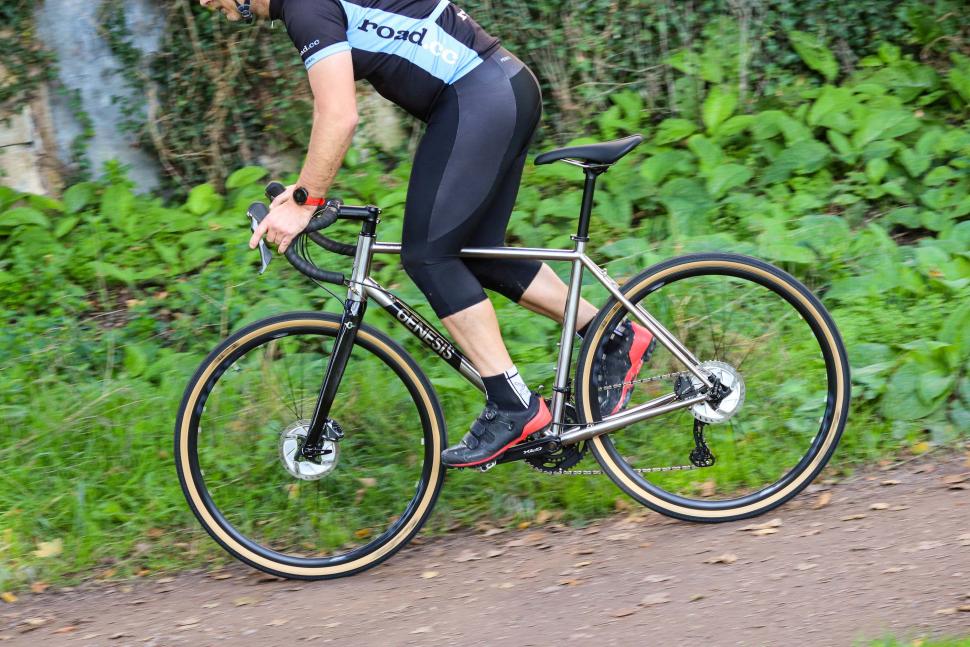
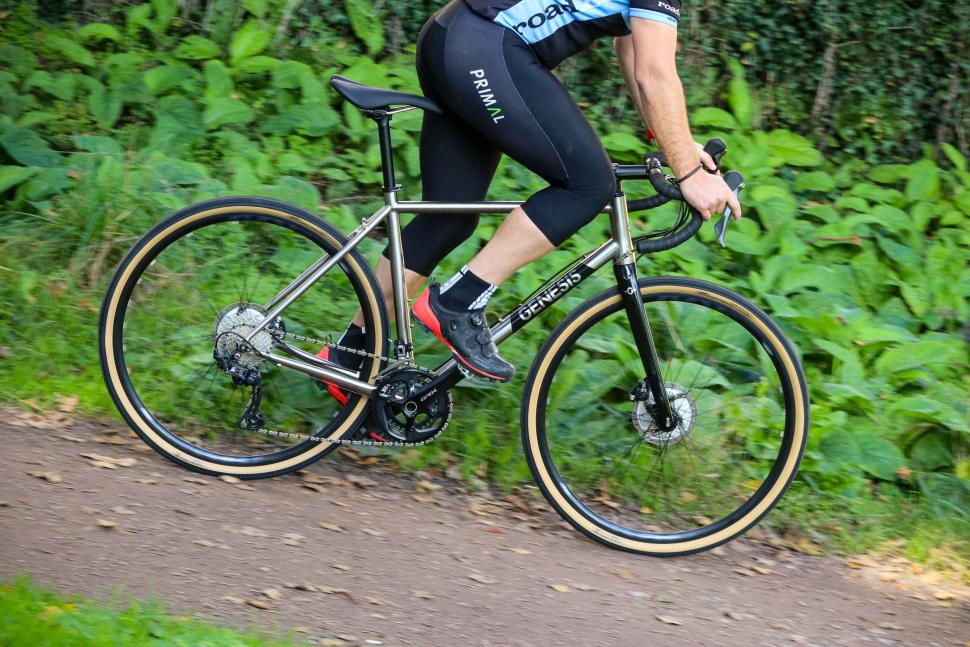

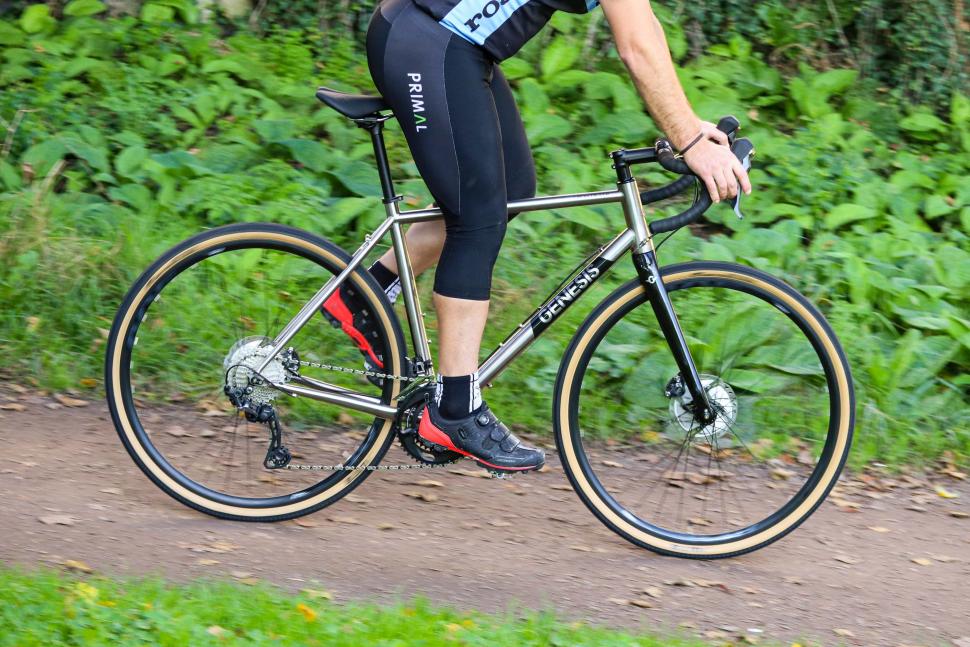
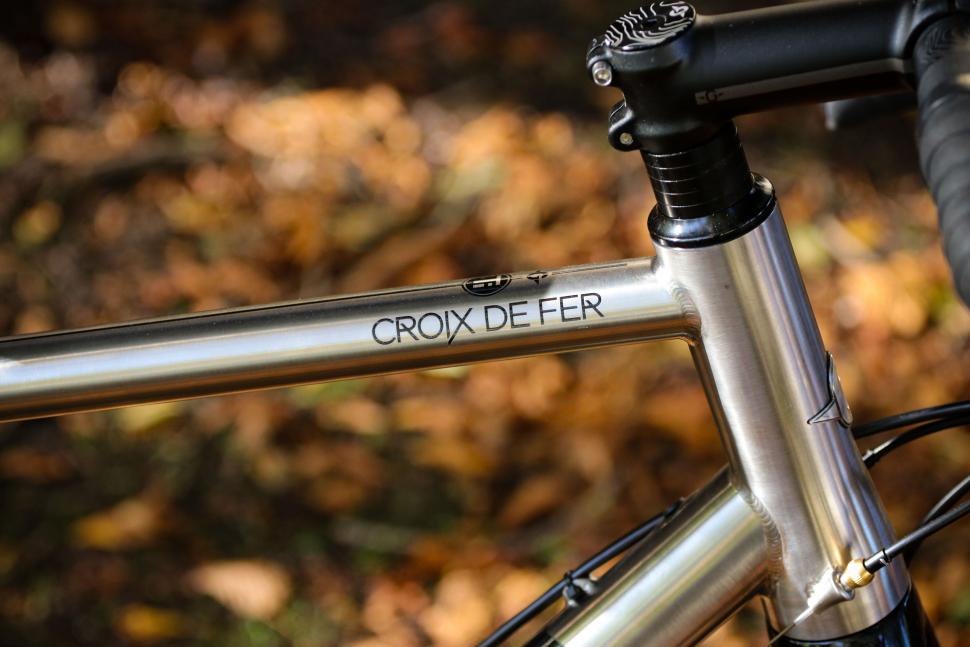
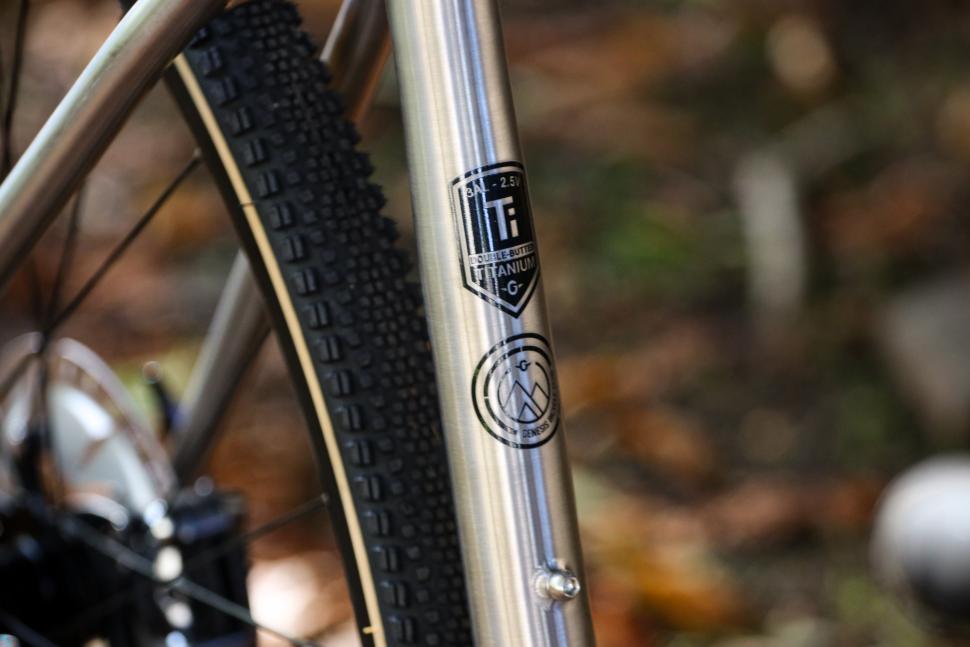
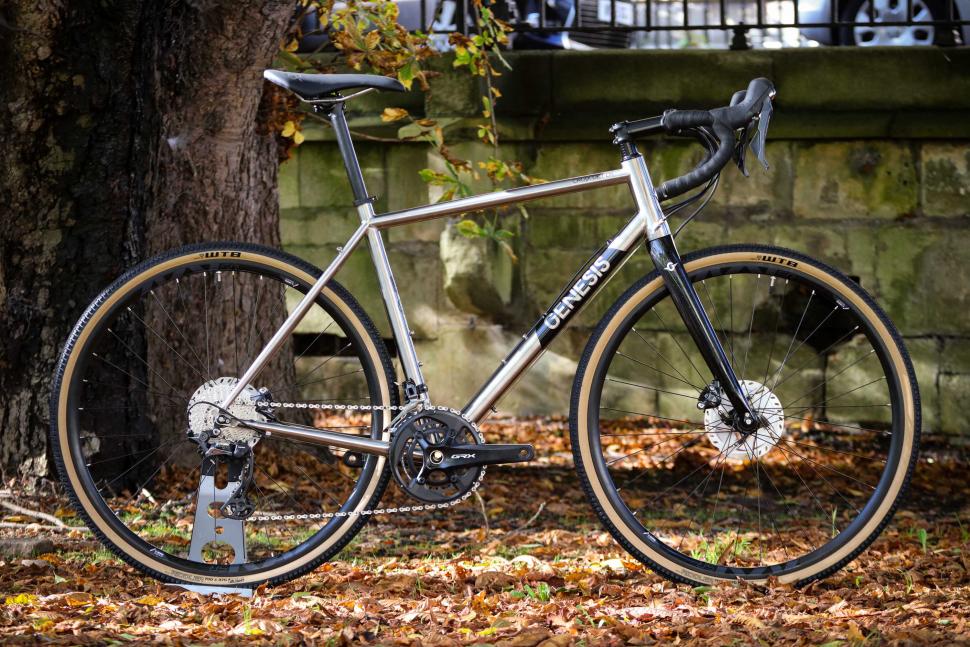
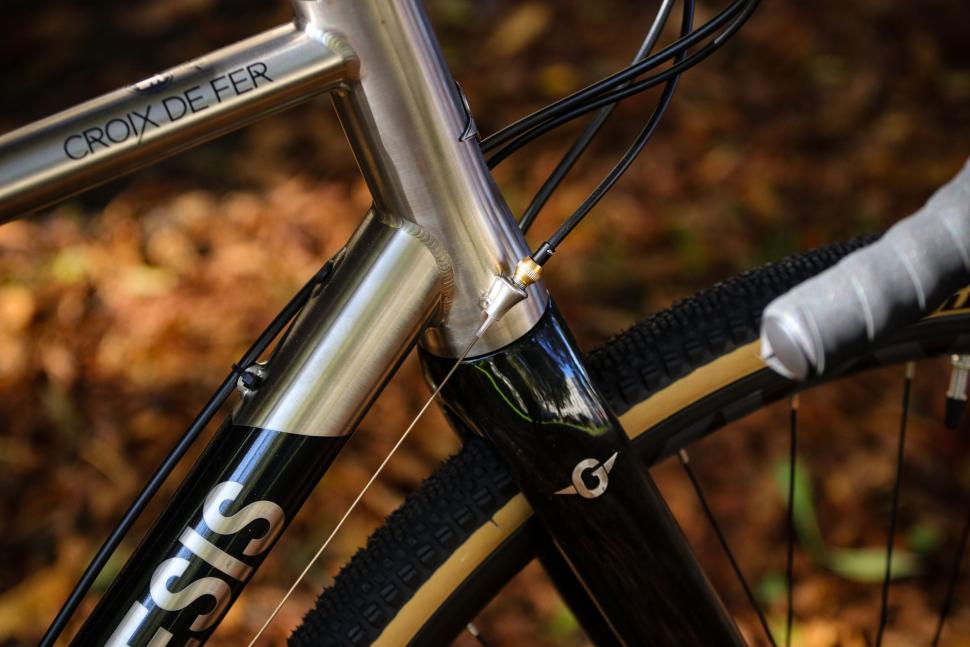
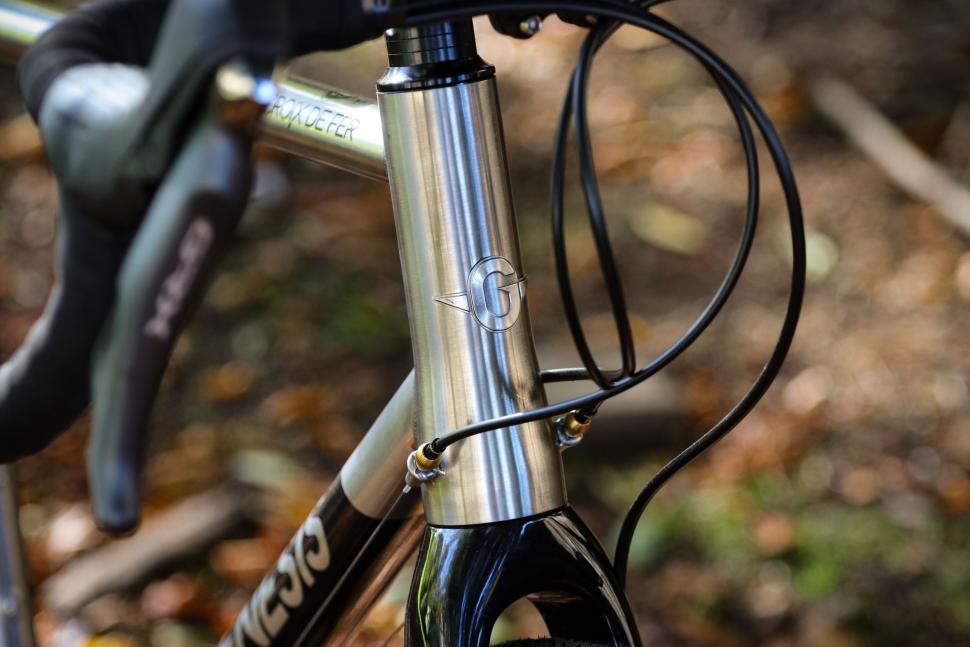
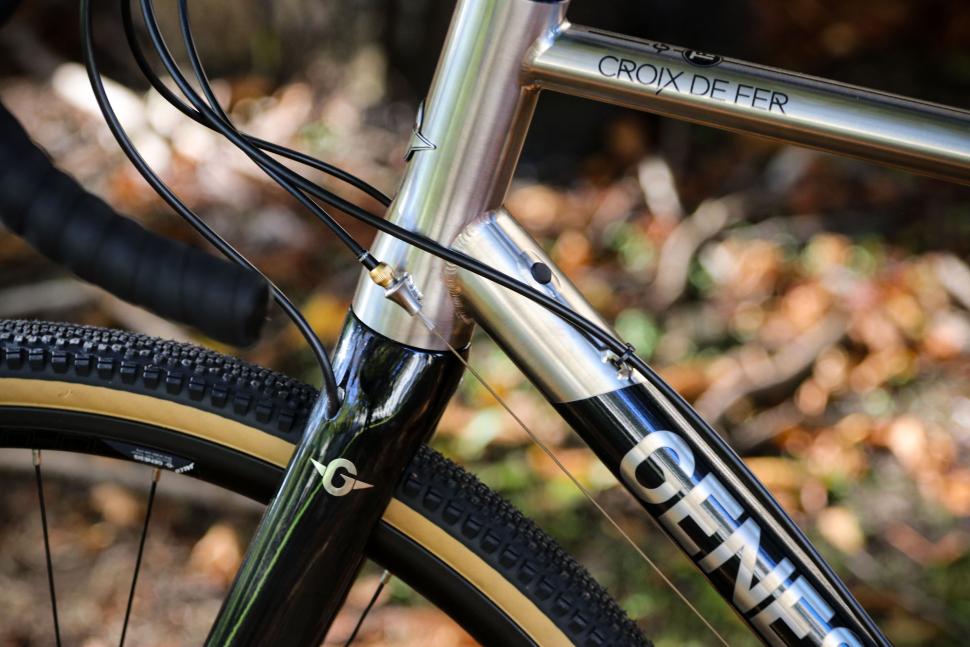


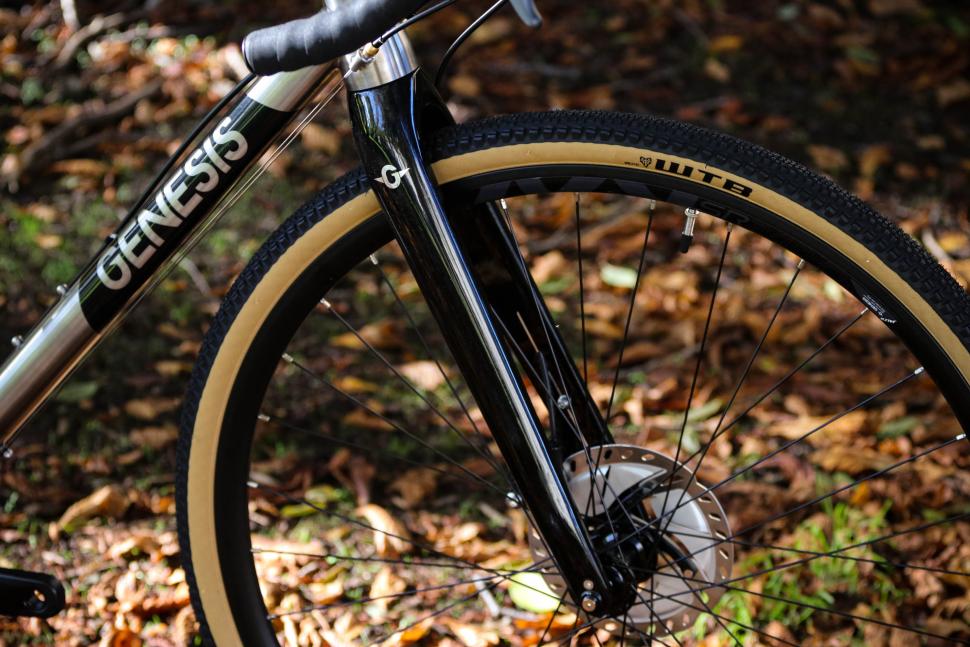
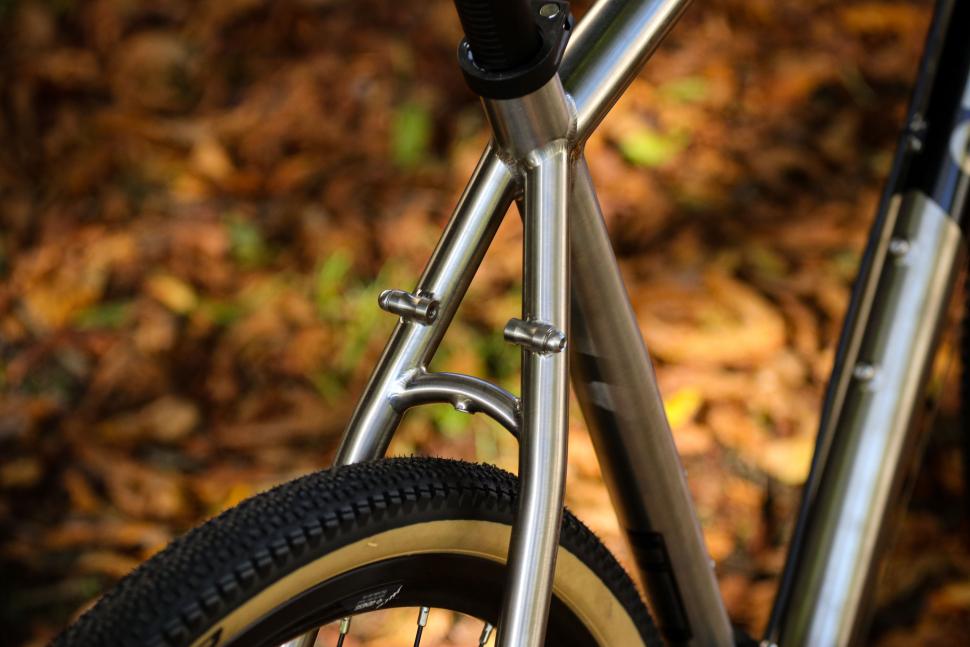
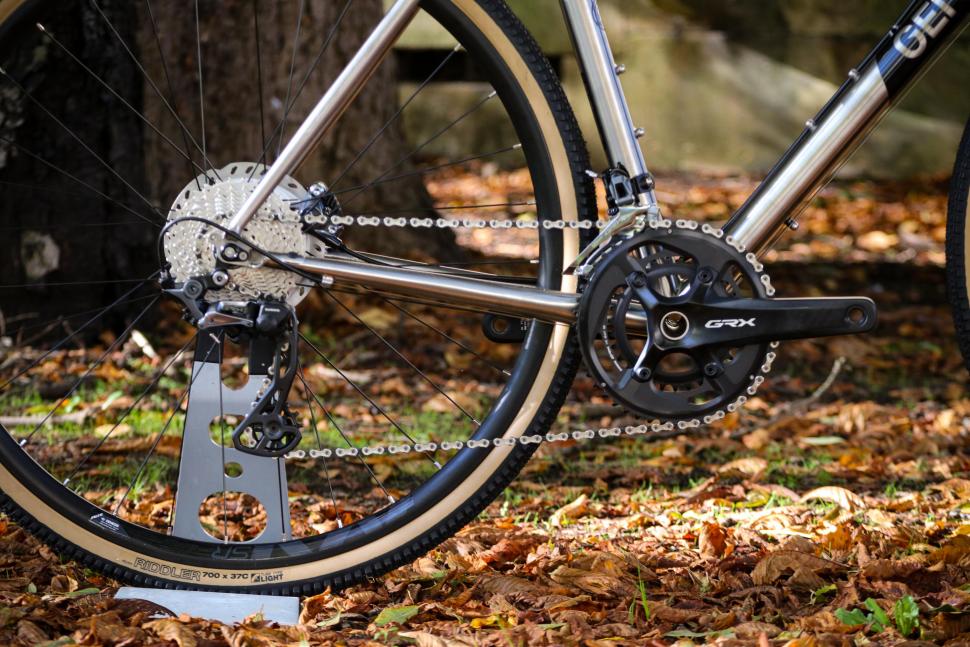
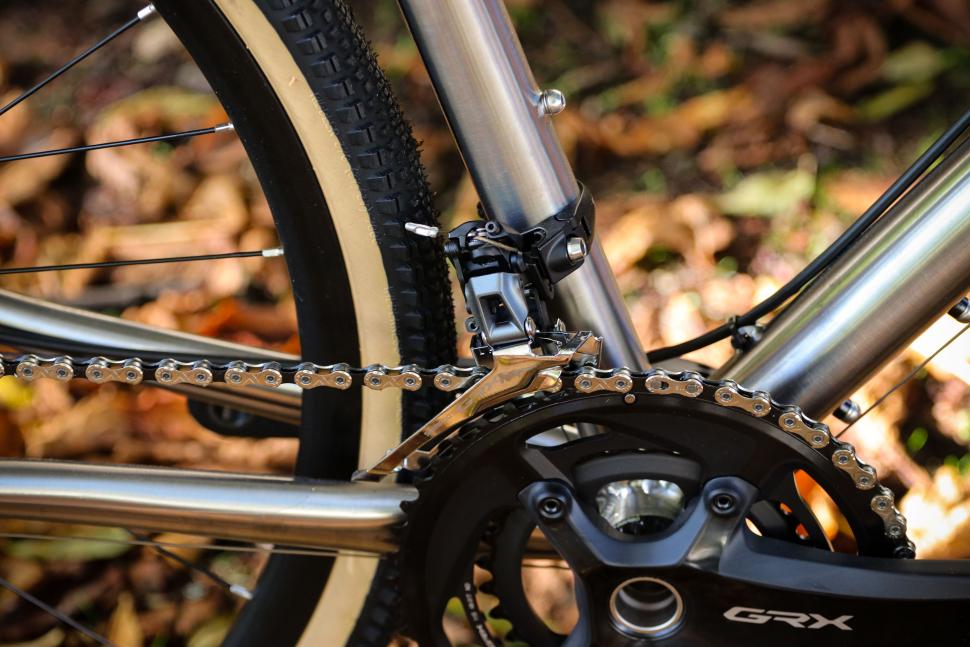

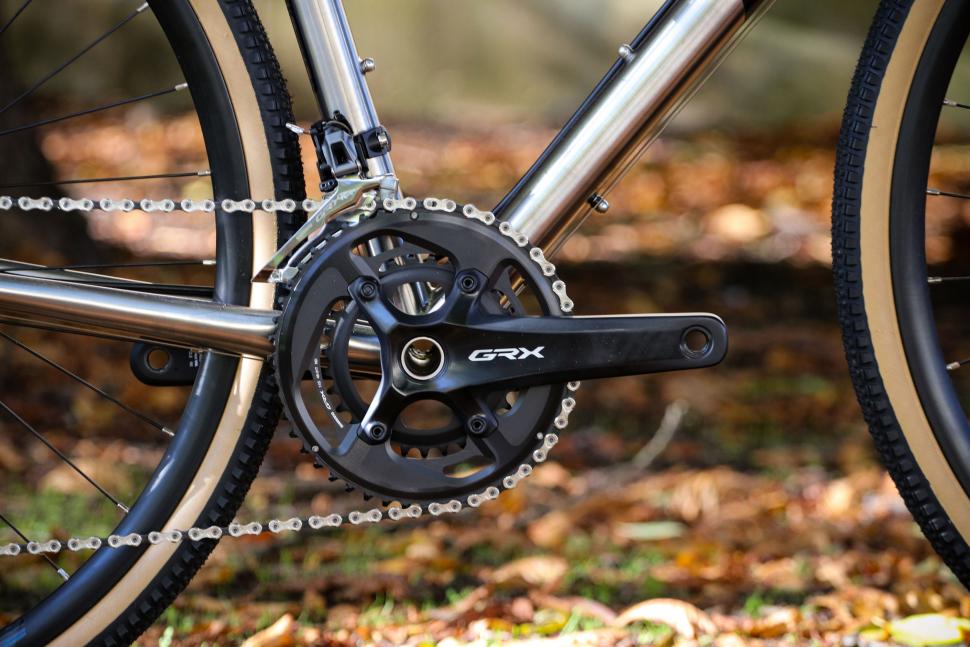
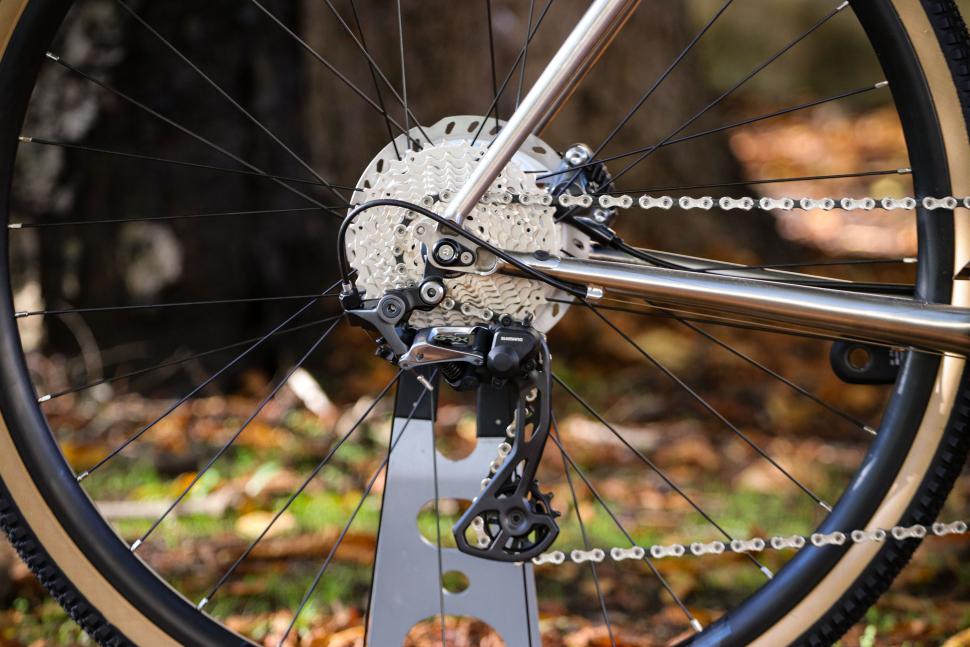
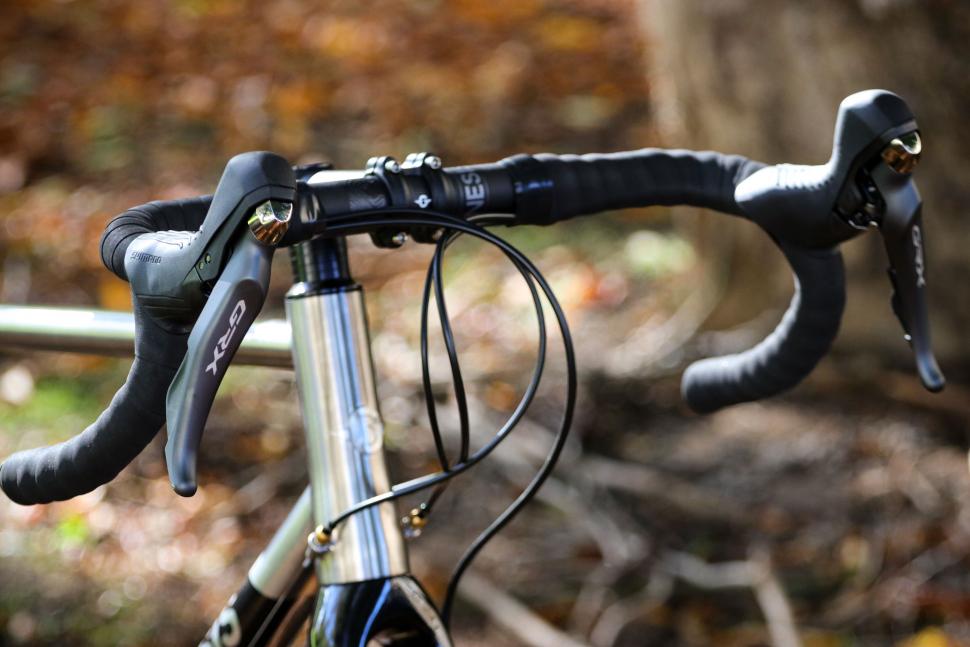
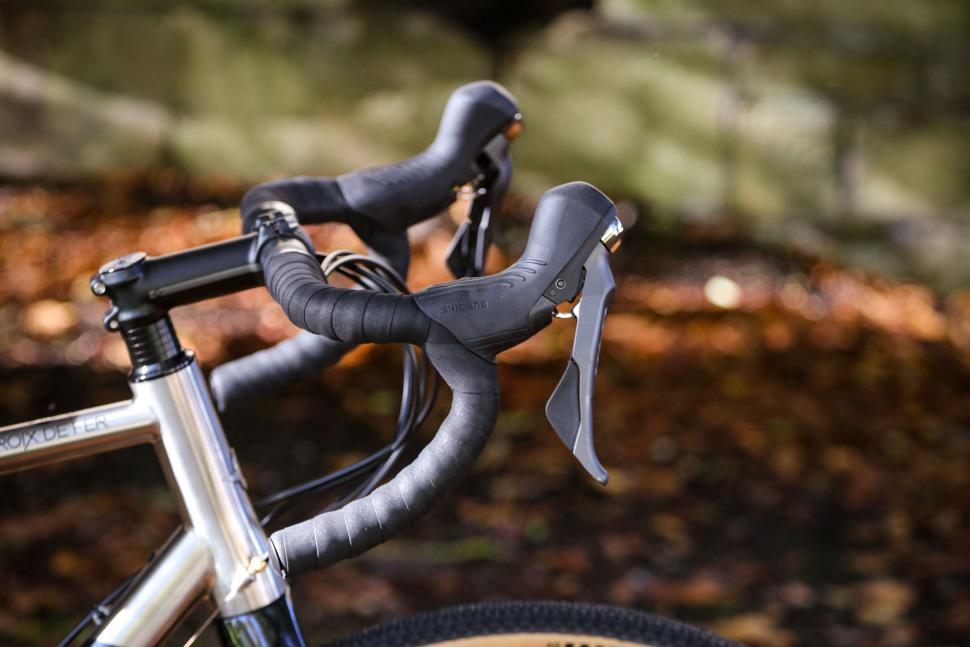
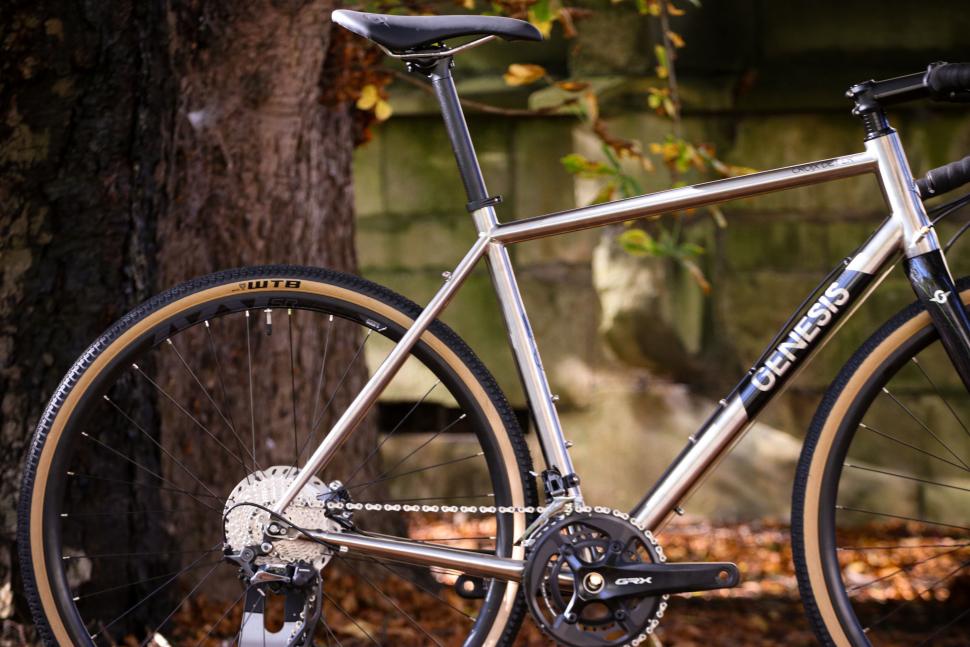

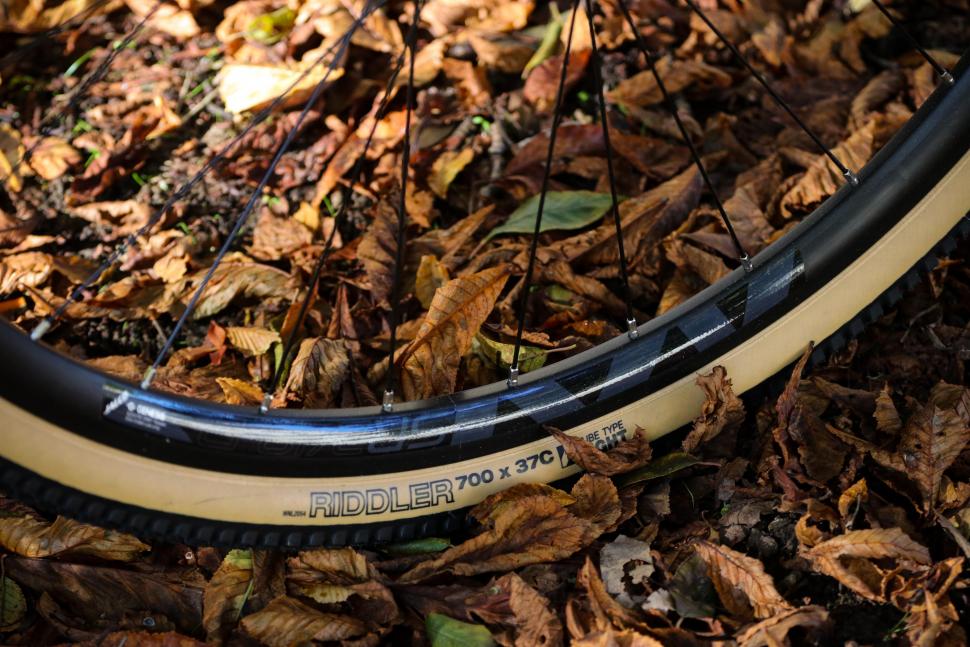
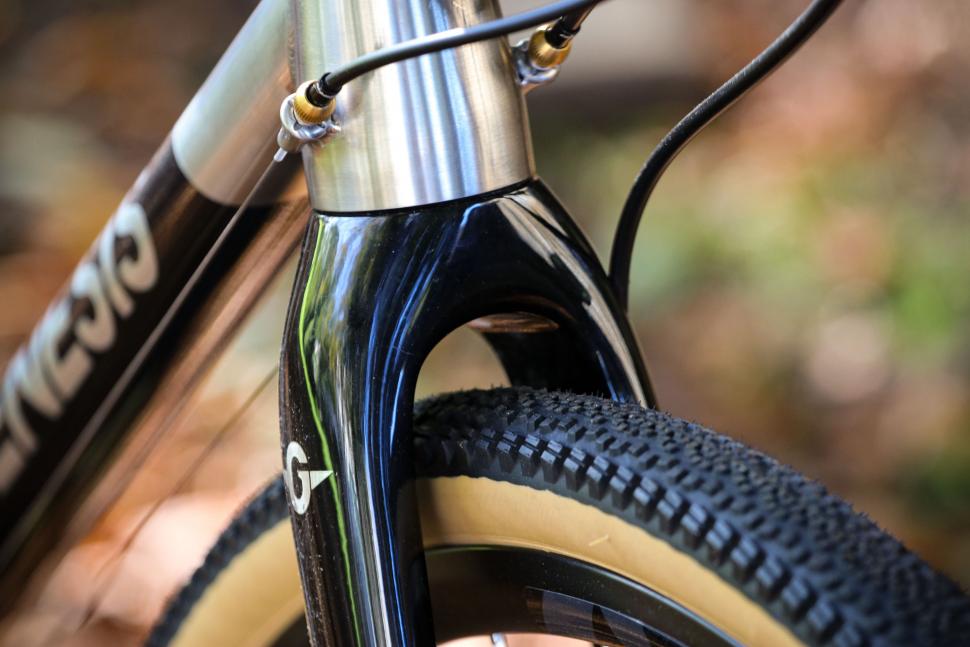
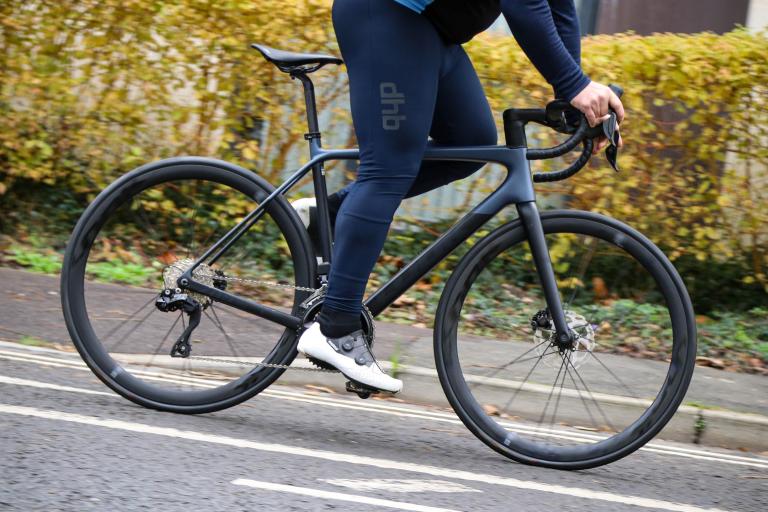
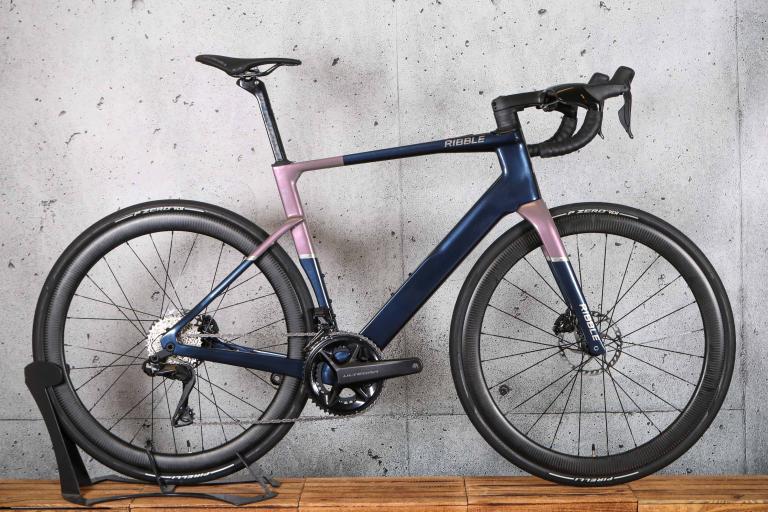
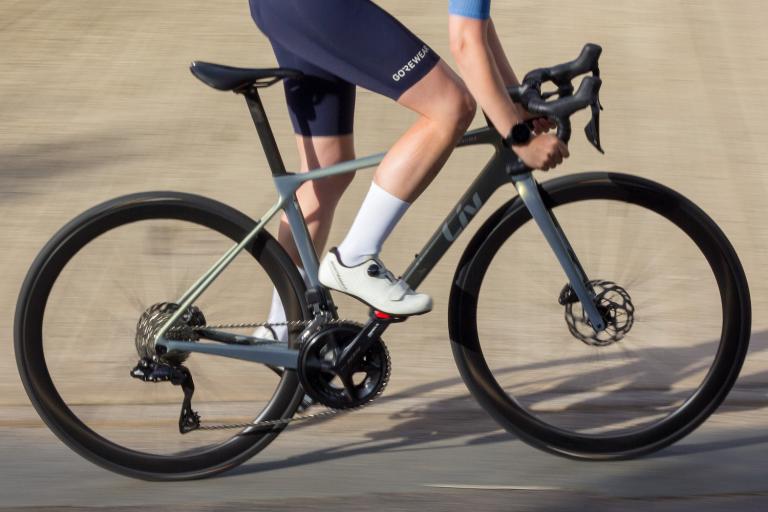
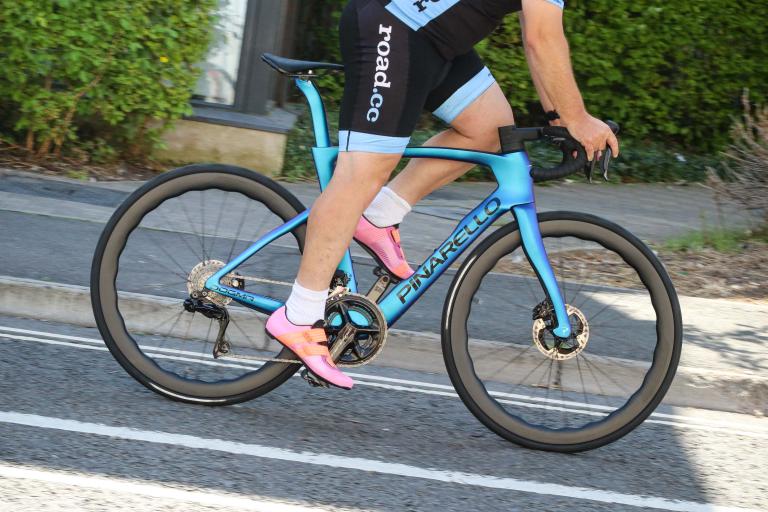
Add new comment
16 comments
FWIW I've owned mine for two plus years and I have found it superb, I've ridden everything on it from the Peaks, Dales, C2C, SDW and no end in between I service it after every ride it's still as sweet as a nut. I've replaced consummables of course but hey it's still fantastic value for money. I find the handling predicatble and very comfy, I run tubeless 38c and it's perfect. As folk have mentioned it still looks good because there's no paint to chip. I remember meeting a guy on the Ridgeway riding a Shand Stoater (lovely bike) we stopped and chatted for a while, the downside his was already marked, chipped paint from the section he'd just ridden. I'd have been crying at that his bike was brand spanking new.
I would also recommend buying used, I never buy brand new, I have purchased all my bikes that way, I dropped £1400 for my croix de fer ti, the guy brought it and decided it wasnt for him.
I appreciate it requires waiting some times but they do come up if you're not in a desperate hurry.
I've got the 2019 version and paid £2.3 k and you can get this version for £2.6k. I bought Hunt Masons and Hutchinson tubeless to replace the existing wheels and love it. Well done to anyone with the skill to build up a bike, fair play! I don't have have those skills so need to shop around but if you do it's a cracking bike. Yes it's not the lightest but suits my winter riding perfectly.
Fair point, I'm picking the wrong targets for my weight vs. cost comparisons! I could have bought a carbon Cube CX bike for only a couple of hundred more which was better specced AND lighter than my rim brake bike, so it's stupid of me to pick on boutique style bikes which are naturally more costly due to the volume they are produced in.
Plus I never used to be a weight weenie, it's what comes of putting together a custom build spreadsheet, you suddenly start to view everything in terms of a 'cost' column and a 'weight' column!
It is kinda silly money... my next bike will be ti but I'm eyeing a September frameset and I'll be building it up myself for about £2.4k. Is this genesis 50% better than that will be?
I got a 2nd user September (rim brake) not that long back, stripped it to bare frame and rebuilt incl some lovely NOS CF forks that accept 35mm, the rear could do 40mm conservative if it were canti/ve compatible
It's a 56, comes in just under 7.8kg and bang on 8.1kg with XT Pedals.
Build is: Ultegra 6800 STI/RD/FD/Cassette/Chain, Sugino triple c/set + TA rings (left STI is a 4703 Tiagra), Deda Newton & Zero bar/stem, Pro lite Bortola with 35mm Conti CXSpeeds, TRP 957 calipers.
How the feck they manage to make these bikes so bleedin' hefty is anyone's guess!
In that case wouldn’t a better comparison be with something like a Canyon Grail AL? That makes your rim brake bike look expensive by comparison. (Disclaimer - I am fat, and all my bikes are disc.)
Miss my point about economies of scale and market forces? I think most people now accept that high end bikes are expensive, I just feel that manufacturers are taking the piss even more these days.
Wow, useful contribution there! You can laugh all you like, I've paid half the cost of the bike reviewed and effectively got a custom bike precisely dialled in to what I want, instead of a generic ti frame with distinctly average components bolted to it for twice the price!
No way, so you can build your own aluminium bike with rim brakes more cheaply than you can buy a pre-built titanium bike with disc brakes, and it'll be a whole half a bottle lighter?!
I bought a motorbike, with disc brakes, tubeless tyres and an engine, for less than your aluminium bike cost.
Wow... almost £4k for 9.7kg?
You would have to reeeeeally love Ti to pay that sort of money, and still with bottom of the range wheels?
I love the gravel niche, three of my five bikes are all gravel-ised in some shape or form, but the industry seems to think 'gravel' = 'add 100% to the mark up'.
Have built an aluminium gravel bike with suspension seat post, GRX 810/105/Ultegra drivetrain, rim brakes and Pacenti/Sapim/DT wheels and it weighs in at 9.6kg, 9.4kg without the Thudbuster. Cost £1900. Adding discs would have made it 9.7kg and probably £2200.
Some weird market forces and economies of scale obviously at work!
Value comes down to so much more than just a baseline of cost against weight. Having said that Genesis have opted for bullet proof over weight on the stock wheels. I use the stock ones for smashing about on gravel and then something nicer on the road.
I've got aluminium and carbon and I can honestly say that for a winter bike that's subjected to a lot of abuse it's the perfect choice. Not least because it will still look amazing after enduring the worst that British Winters and I can throw at it.
IMG_3388.jpg
If it were possible, I'd give you two likes for the photos! Those tubes…swoon
LOL....just LOL
Just in case anyone thinks I was paid to make that last gushing comment, I'd say that supplying this bike with non tubeless compatible WTB's is absolutely ridiculous for a bike in this category. Obviously they came straight off, I get that they aren't set up to deliver them tubeless but the non-compatible version??
On another note the GRX works flawlessly in all conditions, but why Shimano insist on supplying their "winter bike' groupsets in black (I'm thinking 105) is beyond me. The finish on the cranks was ruined after ONE! off road ride (albeit really crappy conditions).
Also I stuck an 80mm negative rise stem on and that sharpens up the handling to my tastes nicley.
Just to add to this, I have one of these and I'd say that the maximum tyre clearance quoted is very conservative to say the least. I'm running 40's and as you can see from the pictures attached there is loads of room and in drier conditions I'd say you could go bigger.
Also just to note I'd say the ride quality is absolutely sublime with the right tyre wheel combo, I ride it mainly off road as CX training bike. But when you stick some wheels shod in GP 5000 tubeless on, it ticks along averaging 20mph on the road with a magic carpet like ride. Stamp on the pedals and it's surprisingly lively for a bike that tracks so beautifully over rough surfaces.
I'm lucky enough to have a few bikes for a few things but I'd say that one of these with 2 pairs of wheels and British roads being the way they are, this could be all the bike you'd ever need. (I won't be saying that in front of my wife).
IMG_3629.jpg
That's a lovely bike you have there and you're definitely correct in that it can be one bike that does many things. However, in my experience the amount of clearence in your photos isn't massive if you're riding on British winter gravel which has a tendency to get muddy pretty quickly, I just wish there was more of that fine, dry American gravel stuff over here!
However, in my experience the amount of clearence in your photos isn't massive if you're riding on British winter gravel which has a tendency to get muddy pretty quickly, I just wish there was more of that fine, dry American gravel stuff over here!
[/quote]
It's clay where I ride and really 40's still leave plenty of room and as I say bigger for drier, rocky conditions would still work. Another advantage of titanium is that you don't worry about grit rubbing around the stays a bit like you would with carbon.